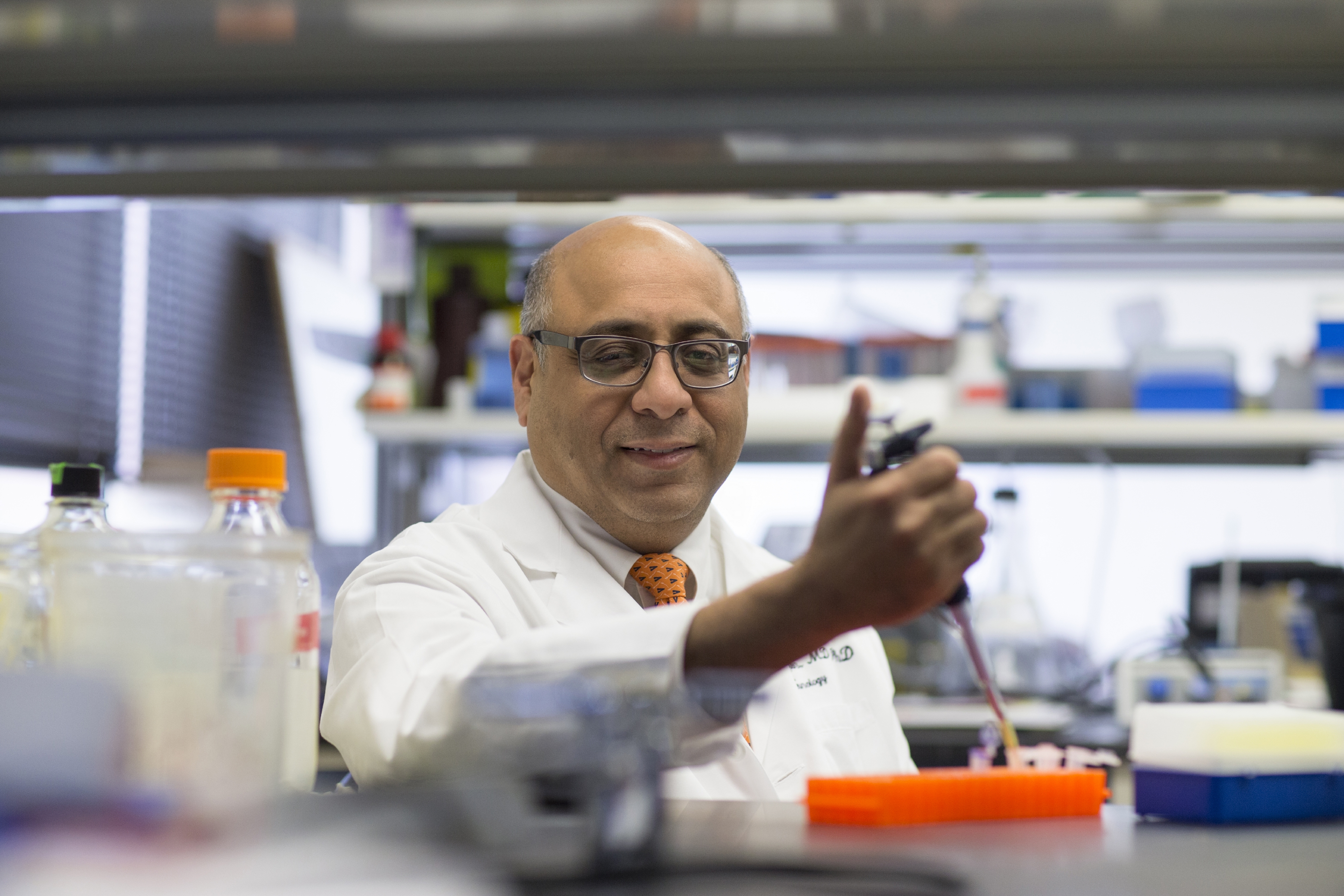The brain is the most complex organ in the human body, and it now is the subject of study for the University of Virginia’s newest multi-disciplinary, pan-University undertaking: The UVA Brain Institute.
“We are building on broad strength and recent breakthroughs at UVA in several areas related to brain science and education to understand, reverse-engineer and treat diseases of the brain,” Thomas C. Katsouleas, UVA’s executive vice president and provost, said.
The new institute will draw upon talented faculty and students and recent cluster hires in the College and Graduate School of Arts & Sciences, the Curry School of Education, the School of Medicine, the School of Engineering and Applied Science and the Data Science Institute – to all work as colleagues on developing better methods for understanding the multi-faceted brain, to seek new ways to prevent, treat and cure brain diseases and injury, and to teach about what is learned.
Katsouleas and a committee involving vice provosts, the interim vice president for research and a representative of the UVA Faculty Senate selected the Brain Institute as the University’s second cross-Grounds institute in a strategic initiative – part of the Cornerstone Plan – to eventually establish up to five institutes dedicated to tackling some of society’s most difficult and pressing challenges. The first such institute, established in 2014, is the Data Science Institute, which deals with “big data” management, analytics, research and education.
“The creation of this second pan-University institute shows how the Cornerstone Plan is continuing to shape UVA’s academic and research enterprise as we embark on the University’s third century,” UVA President Teresa A. Sullivan said. “While drawing together existing strengths in schools and units across Grounds, this institute will create new, unified momentum in brain study at UVA.”
Last fall, Katsouleas’s committee put out a call to the University community for ideas and proposals for the second institute. Faculty members from around Grounds presented 24 concept papers, and from those the committee invited five to complete full proposals. A team of expert reviewers from within and outside the University evaluated the ideas, and ultimately the University selected the brain as the subject on which to build its newest institute. One external reviewer stated that the institute will elevate UVA from “prominence to preeminence” in brain science.
Dr. Jaideep Kapur, Eugene Meyer III Professor of Neuroscience and Neurology and a leading researcher and physician in the area of epilepsy, will direct the UVA Brain Institute. Under his leadership, the institute will help UVA researchers develop multidisciplinary collaborative research projects that will compete for national grants; help recruit top-flight researchers centered around the study of the brain and the diseases and injuries affecting the organ; educate and train undergraduate, graduate, medical students and post-doctoral fellows; and encourage philanthropy from potential donors with an interest in improving brain health and treatment.

Dr. Jaideep Kapur, Eugene Meyer III Professor of Neuroscience and Neurology and a leading researcher and physician in the area of epilepsy, will direct the UVA Brain Institute. (Photo by Dan Addison)
The Brain Institute will operate on an initial $1 million internal award, and will grow through new grants and philanthropy. Eighty current faculty members from a dozen departments around Grounds and from the Data Science Institute will participate in the new effort.
“We will leverage cluster faculty hires in neurosciences, biomedical data sciences, traumatic brain injury and autism,” Kapur said. “We already have on board leading researchers who will help us achieve preeminence as we further build our faculty base.”
Setting up an institute focused on the brain matches recent priorities in brain research established by the federal government and the commonwealth of Virginia. President Obama in 2013 launched a 10-year brain research initiative “to revolutionize our understanding of the human mind and uncover new ways to treat, prevent and cure brain disorders like Alzheimer’s, schizophrenia, autism, epilepsy and traumatic brain injury” – all areas where UVA has research and clinical strengths.
“We will develop innovative, creative, cutting-edge scientific projects and pursue greater funding for our research from the National Institutes of Health, the National Science Foundation, the Department of Defense and other agencies that are facilitating brain research,” Kapur said.
The commonwealth of Virginia also has launched an effort to organize and stimulate neuroscience research at its major research universities, with a goal to establish Virginia as “the Brain State.” In that vein, Kapur plans to work with other Virginia universities.
He said he believes that the strengthened emphasis on brain research will lead in a decade or so to major scientific, diagnostic and treatment breakthroughs that will greatly improve society and the lives of individuals suffering from brain diseases and injuries.
The University will recognize the Brain Institute team and the other finalists during a celebration event in the fall. At that time, the next round of competition will open to establish the third pan-University institute. Previous entrants – some of whom have received additional University support – may reapply.
“The biggest, most important and challenging questions and problems society faces cannot be solved within the constraints of any single discipline,” Katsouleas said. “Such challenges require big thinking by top scholars who can bring to bear expertise from a variety of areas. That is the raison d’etre for the Pan-U Institutes in the Cornerstone Plan, and UVA Brain is a perfect example.”
Media Contact
Article Information
May 23, 2016
/content/university-establishes-brain-institute-part-strategic-plan

